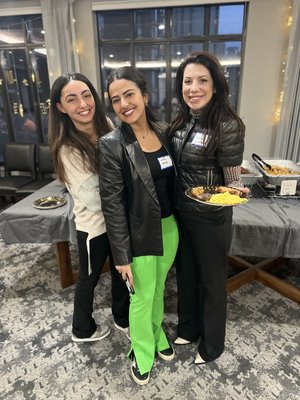Sadaf Ali is secular humanist and grassroots community organizer. Here, she shares her story on the need for inclusive dialogue that respects faith, identity, and lifestyle choices.
I am a secular woman. People often tell me that I defied all odds. It is common for people to subject us to such platitudes, often insinuating that we are anomalies. We are not rare. Muslims, former Muslims and Islam are not a monolith.
In my four years of grassroots organizing, I turned an irregular meetup group in Toronto into a safe-space for non-theists of the Muslim faith and identity. Former Muslims expressed that the common need for empathy was scarce in our respective communities. Many of us are left to our own devices. Some belong to environments where sharing our internal struggles with faith and god could bring the danger of physical harm, alienation, and more often paternalistic behaviours and attitudes. I wanted people to come together, safely and privately, in a place where their dignity and autonomy would be rightfully respected.
The systems, tools, approach and branding I developed for the safe-space became the very foundations for Ex-Muslims of North America, a community building organization. Through my personal encounters with a network of over a 1000 ex-Muslims, I used every resource I could to help even the most vulnerable of the group in mind. In my work, I also encountered Muslim allies who have welcomed us into their spaces and into their hearts. For that, I am grateful and wish to pay it forward to join them in their struggle to be acknowledged the same way we are not afforded acknowledgement by our communities.
It may seem ironic to many but developing dozens of safe-spaces and connecting with a global network of former Muslims heightened my love and appreciation of Muslim peoples, our cultures, our histories and our struggles exponentially. Members hail from all corners of the world, of different sects, with dozens of ethno-cultural backgrounds to boot. I have never been prouder and happier to share spaces that were meant to be inclusive to all – no matter their gender identity, sexuality, income, skin colour or size. We shared each of our unique experiences. We shared our cultural cuisine and ate together. And when times got rough, we opened up our homes to one another, despite everything that would otherwise divide us. Our combined identities and stories would shatter every reductive view of Muslim people and Muslim communities ever presented by Muslims and non-Muslims alike in mainstream media and public discourse.
It is not an atheist or ex-Muslim agenda that motivates me. I know that leaving a religion does not guarantee a moral high ground. Islam itself is as diverse as its Muslims and like any other ideology or belief system, it can be used as a tool for oppression. What motivates me is a collective struggle of coming from communities where we are not welcomed for making choices for ourselves. I join current and future generations to stand against ostracization for any expression of any part of our identities. We already live in a world where anti-Muslim bigotry, racism, xenophobia of immigrants and refugees erode and diminish us. Why further harm our communities and families for the evolving need for individualism, expression, and inclusion?


